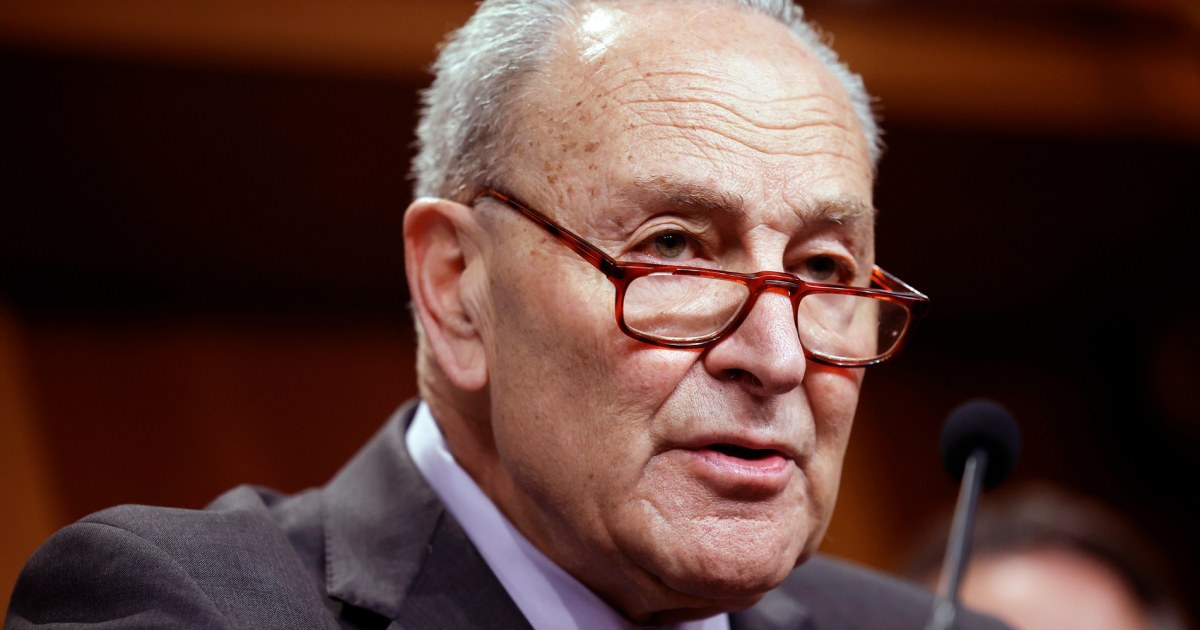Democrats' Doubts About Schumer's Leadership Grow: A Shifting Political Landscape
The Democratic Party is facing a moment of internal reckoning, with whispers of discontent regarding Senate Majority Leader Chuck Schumer's leadership growing louder. While Schumer has successfully navigated numerous legislative hurdles, including the passage of the Inflation Reduction Act, a sense of unease is permeating the party's ranks. This article delves into the emerging challenges and explores the potential ramifications for the Democrats heading into crucial upcoming elections.
Rising Concerns within the Democratic Caucus
Several factors contribute to the simmering dissatisfaction with Schumer's leadership. One key issue revolves around the party's messaging. Critics argue that the Democratic message hasn't resonated effectively with voters, particularly in key swing states. The party's struggle to effectively communicate its accomplishments, like the infrastructure bill, has fueled concerns about strategic shortcomings.
Messaging Challenges and Communication Gaps
- Lack of Clear Narrative: Critics argue that the party lacks a cohesive and compelling narrative to counter Republican attacks. This has led to confusion among voters, hindering their ability to understand and appreciate the Democrats' agenda.
- Internal Divisions: Disagreements on key policy issues, such as climate change and social spending, have created internal divisions that have been exploited by the opposition. This lack of unity weakens the party's overall message.
- Inadequate Outreach: Some believe the party has failed to effectively reach out to key demographics, leading to a decline in support among crucial voter segments.
Legislative Setbacks and the Impact on Morale
Beyond messaging, recent legislative setbacks have also contributed to the growing unease. While the Democrats have achieved significant legislative victories, the party's inability to pass certain key priorities has frustrated some members. This perceived lack of effectiveness has impacted morale within the caucus.
Frustrations over Legislative Gridlock
- Challenges in Passing Key Legislation: The narrow Democratic majority in the Senate has created challenges in passing even relatively popular bills. This has fueled frustration and concerns about the party's ability to deliver on its promises.
- Internal Policy Debates: Intense internal debates on issues such as the size and scope of government spending have further hampered legislative progress.
- Impact on Midterm Elections: The perception of legislative gridlock and ineffective messaging could significantly impact the Democrats' performance in the upcoming midterm elections.
The Path Forward: Rebuilding Trust and Unity
The challenges facing Schumer and the Democratic Party are significant, but not insurmountable. Addressing the concerns raised by party members requires a multifaceted approach focusing on improved communication, strategic planning, and a renewed emphasis on unity.
Strategies for Rebuilding Confidence
- Improved Internal Communication: Open and honest dialogue within the caucus is crucial to resolving internal disagreements and fostering a sense of unity.
- Refined Messaging Strategy: Developing a clear, concise, and compelling narrative that resonates with voters across the political spectrum is essential. This requires a sophisticated approach to understand the pulse of the nation and effectively target specific demographics.
- Focus on Delivering Results: Highlighting tangible accomplishments and showcasing the positive impact of Democratic policies on people's lives is crucial to rebuilding public trust.
Conclusion: A Critical Juncture for the Democratic Party
The growing doubts about Schumer's leadership represent a critical juncture for the Democratic Party. Addressing these concerns requires a concerted effort to improve communication, refine messaging strategies, and demonstrate tangible results. The party's success in navigating these challenges will significantly influence its future prospects and its ability to effectively govern. The upcoming midterm elections will serve as a crucial test of whether the Democrats can successfully address these internal issues and regain momentum. This situation warrants close observation as it unfolds, shaping the political landscape for years to come.
